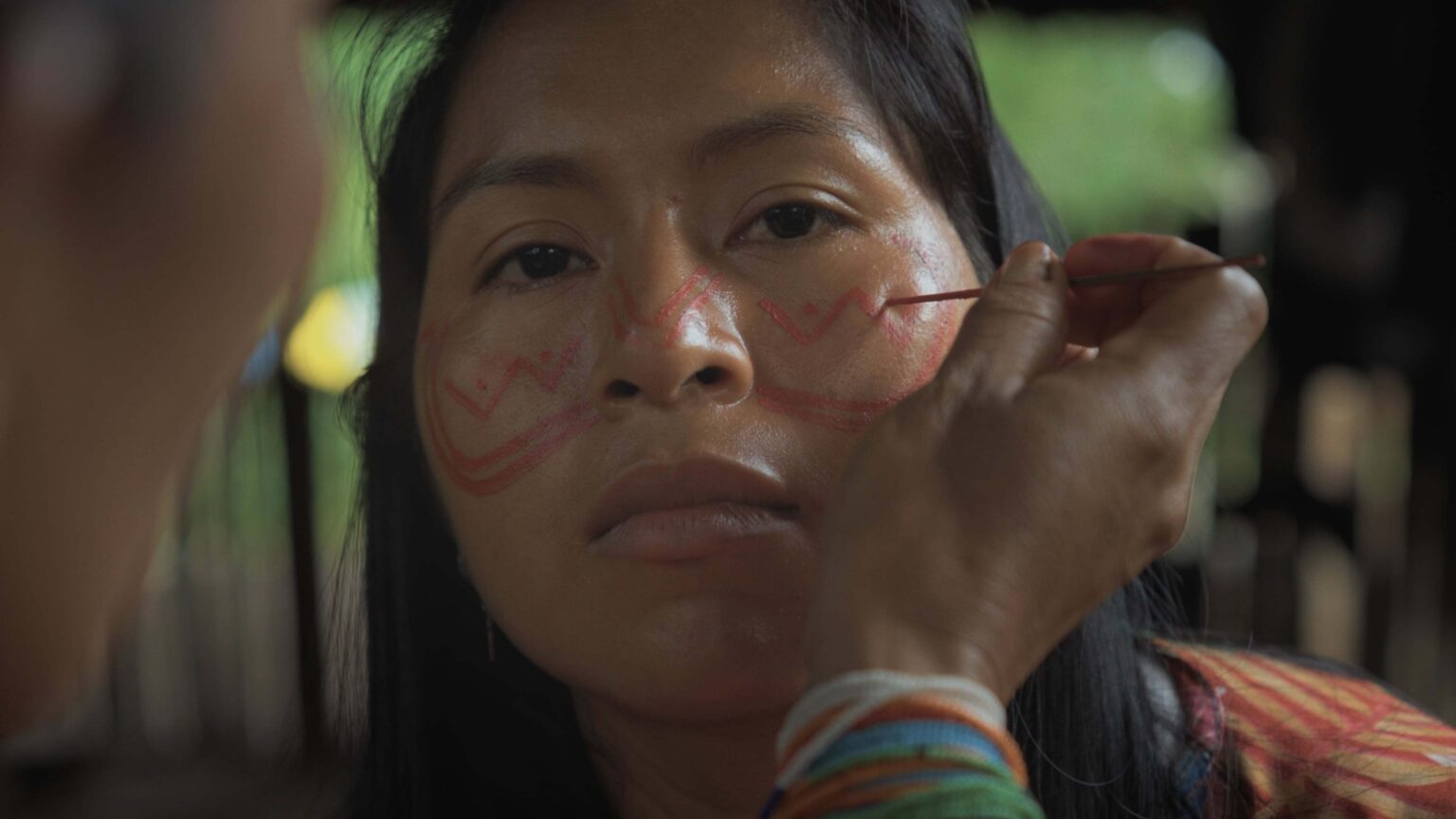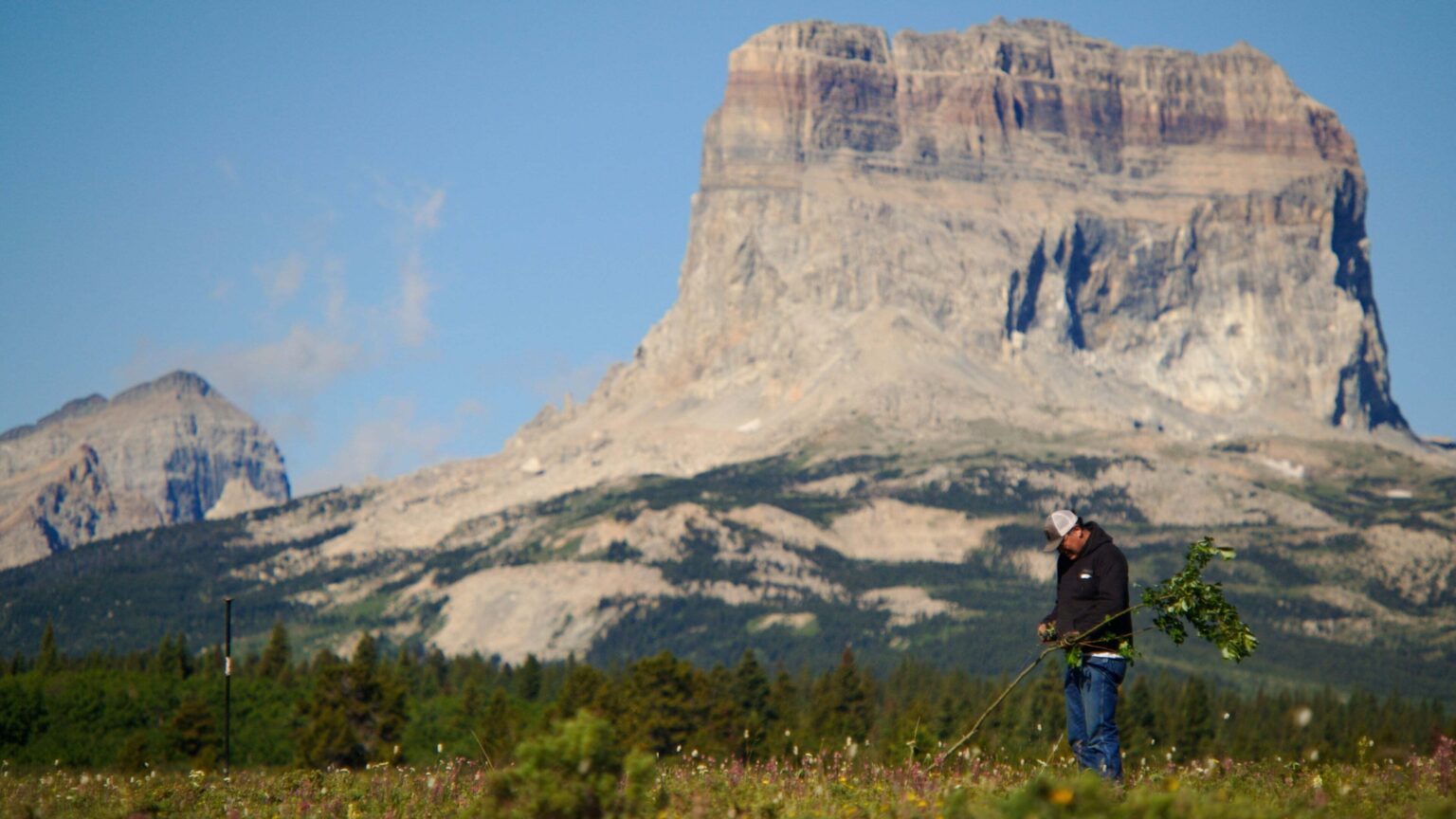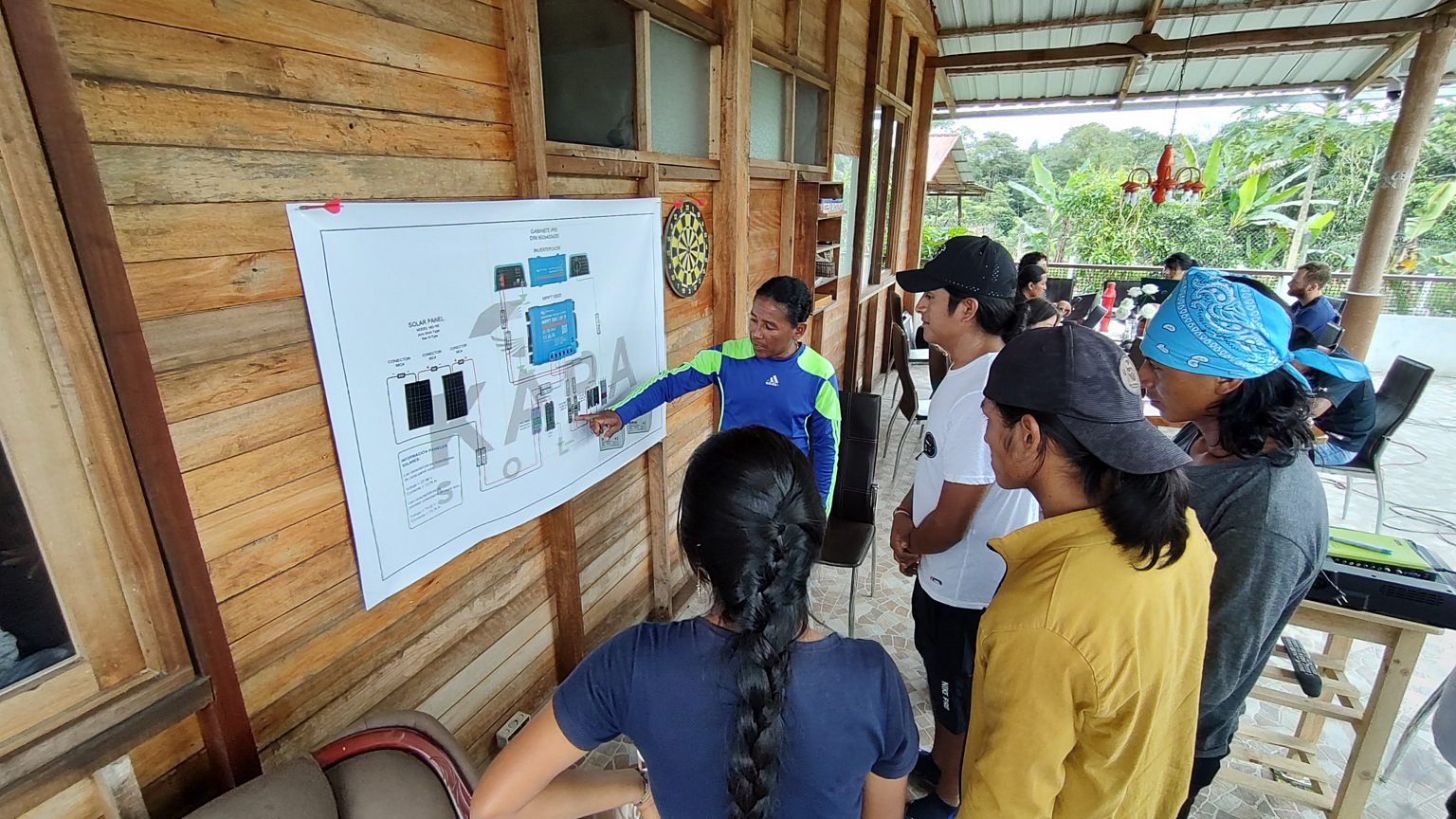Members of the Wayfinders Circle embraced shared values and forged spiritual connections to tackle collective challenges in first in-person global meeting.
The Wayfinders Circle is hope. This description, along with others, was chosen by members of the Wayfinders Circle to define the network that gathers Indigenous Peoples around the world to unleash the transformative potential of Indigenous lifeways.
For some members, the Wayfinders Circle is a space where Indigenous leaders can share experiences, struggles, and cultures. For others, it is a learning opportunity between peoples going through similar situations and a platform that helps find solutions to collective challenges.
As they gathered at the first in-person global gathering of the Wayfinders Circle in Achuar territory, Indigenous leaders of the network’s first 12 members embraced their shared values as guardians of much of the world’s biodiversity and forged spiritual connections to tackle global challenges.
“The Circle is hope for the world. We must unite” said Elizabeth Paige from the Native American Land Conservancy (NALC). “It is important to feel collective support to preserve our ways of being and protect them.”
Ancestral spirituality to safeguard the future
By bringing their own forms of ancestral wisdom to the Circle, members also emphasized the intrinsic connections between Indigenous spirituality and their tireless efforts to protect their territories and cultures.
“We are not waiting for anyone to protect our territories, to protect our solutions for life. It is important to be supported by our spirituality. We are bringing to life our own stories, our own voices through the Wayfinders Circle,” said Kamil Mamadaliev and Kuluipa Akmatova from the World Union of Indigenous Spiritual Practitioners (WUISP). “We would like to see future generations carry these spiritual practices forward.”
When asked to outline the priorities for the network, Wayfinders reached one overarching conclusion: Indigenous Peoples from around the world must work collectively to safeguard the rights, self-determination, and future of their communities and ecosystems. To achieve this, members agreed to work towards effective communication and increase their efforts to influence global policymaking.
While the shared visions of the members bind them together, Wayfinders also acknowledged that members have diverse experiences, cultures, and solutions to be preserved and shared with other Indigenous Peoples and the wider global community.
“We must reach the heart of other people and that depends on how we tell the story, share our cultures, and help to revitalize them, protect, and prevent the loss of culture”, said Benjamín Ilabaca from the Rapa Nui Municipality.
About the meeting in Achuar territory
The Wayfinder Circle’s first in-person global meeting took place in Ecuador from 11 to 19 October 2022, following online meetings during the COVID-19 pandemic. Members traveled to Achuar territory, specifically to the communities of Sharamentsa and Kapawi, and also visited Baños and Shell Mera.
At the time of the meeting, the members of the Wayfinders Circle included the Achuar Nation (Ecuador), the Blackfoot Confederancy (United States and Canada), the Gabbra (Kenya), the Heiltsuk Nation (Canada), the Mayangna Nation (Nicaragua), the Native American Land Conservancy (United States), Rapa Nui (Chile), Sámiid Riikkasearvi (Sweden), the Sungai Utik (Indonesia), the Udege (Russia), the Wampis Nation (Peru), and Warddeken (Australia). Since then, the Wayfinders Circle has grown to incorporate three more members: the Lhoba Community; from Nepal, the Hin Lad Nai Community, from Thailand, and the Ju|’hansu people of the Nyae Nyae Conservancy; in Namibia.
The Wayfinders Circle is a learning network that gathers Indigenous Peoples from around the world to share possible pathways for human societies to achieve ecological, social, cultural, and spiritual harmony. This collaborative initiative is supported by the Pawanka Fund and Nia Tero, under the guidance of the Council of Elders of the World Union of Indigenous Spiritual Practitioners (WUISP).



